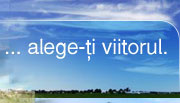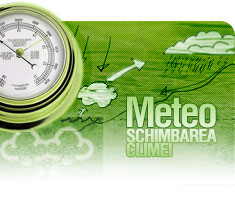Doha, 21st Dec. 2012 (WAM) ? The Kingdom of Bahrain, the Kingdom of Saudi Arabia, the State of Qatar, and the United Arab Emirates filed a historic joint submission to the United Nations Framework Convention on Climate Change (UNFCCC), as a contribution to the success of the 2012 UN Climate Change Conference (COP18/CMP8). The 18th round of these annual negotiation sessions came to a successful conclusion in Doha, Qatar, on December 8.
The Conference of Parties adopted the submission in its closing session, opening the door for developing countries to put forward their national climate change efforts under a broader umbrella, which more clearly recognizes the broader imperatives of sustainable development and economic diversification.
"Qatar particularly welcomes this initiative in support of its hosting of 2012 round," said Abdullah bin Hamad Al-Attiyah, COP18/CMP8 President. "In bringing COP18/CMP8 to Doha we hoped to highlight the innovations and leadership on climate issues being delivered across our region." This decision opens the door for the participating countries to present "Economic Diversification Plans" under the UNFCCC. These plans will detail ways in which each nation is cutting emissions by driving clean energy and building new industries, as well as actions they are taking to protect against a changing climate. These actions are embodied in existing policies and targets. The four countries have pledged to present such plans in the near future.
"The fact that COP18 has come to the GCC for the first time is a great opportunity for the GCC to demonstrate its leadership" said Dr. Adel Khalifa Al-Zayani, Director General for the Supreme Council for the Environment in the Kingdom of Bahrain. "Although GCC countries have unique challenges presented by weather extremes and scarce water resources, this has not prevented us from stepping up our climate efforts and international commitments " Under the UNFCCC, developing countries can present actions on a voluntary and nation-specific basis. GCC countries have a wide range of projects that represent substantial contributions to clean energy technology and energy management including significant renewable energy goals in each country and management of energy demands through regionally-connected ?smart grids,? mandatory energy efficiency programs and new sustainability standards for building codes and appliances. The drive for low-carbon development reaches into other parts of infrastructure development as well including mass investments such as the light rail system in Dubai and one under construction in Qatar. Cutting-edge urban development projects such the UAE?s Masdar City and Qatar?s Lusail City bring the regional commitment to the office and family level ? blazing new trails for sustainable mixed-use development in urban environments and raising the bar for innovative products and practices that can contend with the harsh climate while still hitting sustainability benchmarks. Once completed, the Msherieb Project in Doha will represent the world?s highest concentration of "green" buildings with 108 of its 110 buildings earning sustainability certifications, including the first-ever platinum LEED mosque.
The scope of these projects reach to the very core of the economic drivers for each of the nations, laying out a clear path for transitioning to "knowledge economies" across the region. Major investments in transforming industrial processes have seen the countries build on their experience as energy producers to develop technologies for reducing gas-flaring, improving carbon capture and storage and even launching the world?s largest Clean Development Mechanism (CDM) project in Qatar?s Al-Shaheen field.
Large investments in education and research point clearly to a regional commitment to pushing even further. The King Abdullah University of Science and Technology (KAUST) in the Kingdom of Saudi Arabia, the UAE?s Masdar Institute and the Doha-based Qatar Science and Technology Park (QSTP), Qatar Energy and Environment Research Institute (QEERI) and the just-announced Qatar Climate Change Research Institute are well on the way to delivering significant returns economically while contributing to the solutions needed on climate issues.
In their submission to the COP18/CMP8 sessions in Doha, the four GCC nations put forward that the principles of the UNFCCC?s Bali Action Plan include recognition of national plans that deliver progress on climate issues through economic diversification and sustainable development. This concept will prove especially important for nations that are seeking to reduce their economic dependence on revenues from the traditional energy sector. The new decision allows these plans to be brought forward and appropriately recognized under the Convention. The four countries share the perspective that they must drive sustainable development and take actions that limit emissions, build climate resilience and increase long-term capacity for further mitigation and adaptation measures.
The submission represents an innovative approach from developing nations by committing to establish frameworks for cooperation that deliver mitigation and adaptation results by building them into domestic infrastructure and economic development initiatives.
"Taken together these actions are a powerful signal of the region?s seriousness in driving clean energy, enhancing energy security, creating jobs and protecting the climate," said Dr. Sultan Al Jaber, the UAE?s Special Envoy for Energy and Climate Change. "In line with our strong support for the COP18/CMP8 Qatari presidency and close regional cooperation, we are delighted that the door has been opened to recognizing GCC leadership formally in the UNFCCC." "We stand ready for cooperation and action on these global issues," said Dr. Khalid Abouleif, the Chief Negotiator on Climate Change for the Kingdom of Saudi Arabia. "The same technologies and innovations that are key to bringing opportunity and progress to the people of our region are also addressing some of the most serious issues of our time and we are proud to see this gateway opened for developing nations throughout the world."




 Română
Română English
English


